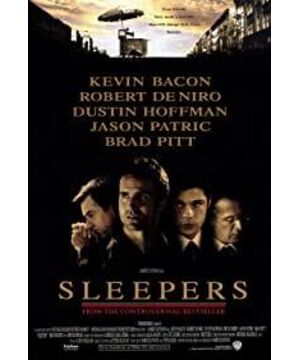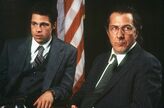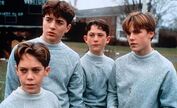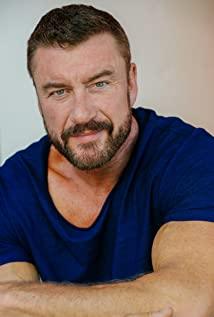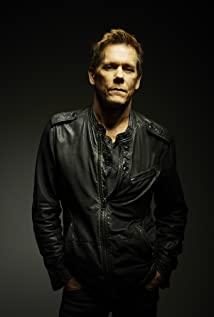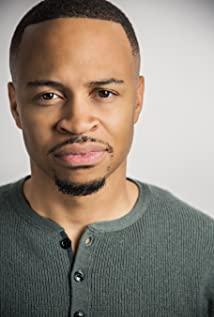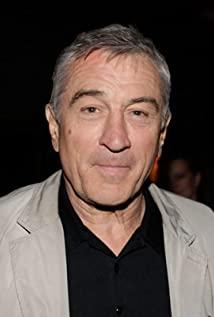This is a movie released in 1996. De Niro plays a dedicated and righteous priest named Bobby.
The story is about Eskichin, a low-level residential area in New York, USA in the 1960s. Four little friends were sentenced to one year in a juvenile reformatory for mischievous crimes. The torture and humiliation they endured during this period made them take these hatreds to heart. As Shakespeare said: "I remember the coldest October night most clearly, it was my 14th birthday and the end of my childhood." Thirteen years later, they were adults. Take revenge on those who had abused them, and expose the darkness of the reformatory. But no matter what kind of revenge, the reformatory has ruined their lives.
It was four guards who bullied them. Their revenge method is very simple. First, they shot and killed the former captain of the guard, Knox, and then let the guard Ferguson testify in court, and let him tell all kinds of misconduct in the reformatory, and borrowed money from him. This tortures the participants in this atrocity. Afterwards, the underworld killed another in the name of not repaying the loan, and the police arrested the last guard who accepted the bribe. This series of actions looks so exciting. The organizers of these actions are Shakes and Michael of the four little brothers. From the beginning of the reformatory, they liked to read "The Count of Monte Cristo", Michael still read this book every day after his release. It means that everything they do is for revenge. But judging from their future behavior, they didn't really understand the essence of revenge.
Killing the enemy with one shot is of course the easiest. The result is simply that the enemy has disappeared from the world. The person who was killed didn't even have time to think about the reason, and the pain he felt was only fleeting. And what should the real revenge look like? The enemy should feel the pain, this is the right way. In addition to beheading, the ancient criminal law also had a more severe one called "Ling Chi". Of course, this is much more severe than beheading, and makes the prisoner suffer physical torture for a long time. The more effective way of revenge is mental torture. Let your enemies live as long as they live. In "The Count of Monte Cristo", Dantis does not kill any of his enemies, but uses his power and money to deprive them of what they love most. He exposed Fernand's betrayal on the battlefield, took away the honor of the soldier who Fernand regarded as his life, forced him to commit suicide, and took away Douglas's money and property, making this money-loving bank. The liver and gallbladder are all split, and the hair and beard are all white. He instigated the judge Villefort's wife to poison the family, let her do illegal deeds and expose her, forcing Villefort, the crown of justice, to go mad. In all these ways, what his enemies felt was the pain of the soul, ruthless, cruel, and happy. But it also showed the ultimate in revenge.
It can be seen from this that the method of Shakes and Michael, although revenge, is a bit simple and rude. Only Ferguson, who testified in court, had that little taste.
There is also a key character in the film, that is, Father Barbie. Father Barbie was also a restless man in his early years and was jailed many times. Later, he became a devout and dedicated priest. The underworld boss Kim Benny commented on him: "Father Bobby would be a good killer, but unfortunately he chose a different life." He is not rigid in religious etiquette, "Most priests like to preach at the pulpit, and Father Bobby likes Preaching while playing basketball". I doubt if he really believed in God or if he was just doing good deeds in God's name and helping the poor. In order to exonerate the two little brothers, Shakes asked Father Barbie to perjury. In response to this excessive request, Bobby asked: "You want me to swear to God and then lie?" But in the end, after careful consideration, he appeared in court without hesitation, and testified in his wily and prudent way, so that justice could be done.
There are two scenes in the film. One is Shakespeare being sexually assaulted by the guards while being forced to recite scriptures in the reformatory. Second, when Shakespeare was serving as a waiter in the church, he told Barbie, who presided over mass, "When I came in, I saw three drunkards and four widows, and Fat Rove was sleeping in the last row." Barbie said I understood and said: "The relationship between rain, bad weather always brings people in." It means that if the weather is good, these few people will not come. It can be seen that Americans in this era have a very casual attitude towards God and pray a few words when needed. Usually, you may not even want to come in through the door of the church, so as not to delay earning money. Is this a step forward or a step backward compared to the devout Christians of the Middle Ages many years ago? Perhaps Americans are more practical, and beliefs serve real life. When I was suffering, you God was indifferent, neither manifested nor helped me, why should I believe in you? But then again, whether you believe it or not, you can't mock God at will, after all, people are so old.
The director not only mocked God, but also satirized the laws of the United States. In the film, Shakes advises Michael to become a lawyer. Michael laughed and said, "I can't do it, I've already seen the law." When a few police officers suggested to Shakespeare, "Have you ever thought about being a policeman?" Shakespeare replied, "Have you turned your back on the bright side?" The hypocritical laws have long been seen by the public. Fat Rove in the film puts it this way: "Street justice is the only thing that matters. Courts are for rich uptown, suit and tie lawyers. Money can buy 'court justice'. But on the streets , justice is priceless, and justice is blind in the courtroom. But here, justice is not blind, justice is long-eyed.” Because of this, the underworld has the foundation of existence, and it is a reflection of the American social order. Added, "We need both". In many cases, it is not the court that maintains justice, but the underworld boss Kim Benny who grills his own fish in the bar.
There is another feeling, I have said in the previous impressions. The Western way of thinking is that many bad things can be done, but not said. Like the shady scenes in the reformatory school revealed in the film, I believe it is not an isolated case. The list goes on and on. I have seen an American film "Nightmare" before, which is based on real events and describes the darkness in American prisons. In reality, there have been too many incidents of prisoner abuse in the United States. There's also the Snowden revelations about Prism, the recent misdeeds of the Australian Army in Afghanistan, and more. In Western culture, it is hateful to do bad things, but when these bad things are unknown, people do not think that is bad. What we oriental people respect is a hero who does things like a hero. But in the West, concealing bad things, keeping the surface bright, and keeping hypocrisy are what a decent person should do. Therefore, when Prism was revealed, the first person to be scolded was Snowden. When the murder of innocent poor people in Australia was revealed, the first person to be prosecuted was the priest who collected the information. Then there was the second, and then there was Merkel's protest against the US wiretapping of her phone, and then there were the soldiers who were disarmed. For this second, the makers of the scandal, most Westerners also have sympathy for them. This is difficult for us Orientals to understand. Because of this, if you directly reveal the shady secrets of the reformatory school, you will only be reviled by the people. Therefore, Michael can only play the role of the prosecutor, and the defense of the two brothers has to go to the alcoholic lawyer. To defend according to the script, no one can be blamed.
The subtitles at the end of the film are interesting. The two institutions in the United States have been busy declaring that there is no such scandal in the reformatory. And the last subtitle said: "Lorenzo says the name, date and location of the play have been changed. He insists that is his own story". Whether it is true or false, only the audience can judge.
In the film, De Niro's acting skills are still so superb, he is kind to a few children, provides them with life choices from time to time, and has a firm and powerful gaze on what he has identified. The cinematography of the film is also good. In that rugby game, all kinds of people and others turned their backs on their horses, and the mud and water splashed around. It was very real. When Shakes was alone, he looked at his palm, which reflected the misfortunes he encountered in the reformatory. After they were abused in the solitary cell in the reformatory, the camera focused on the house and pulled back along the corridor, pulling further and further away. The solitary cell seemed to be an unfathomable black hole. Meaningful.
My rating: 7.5.
View more about Sleepers reviews


